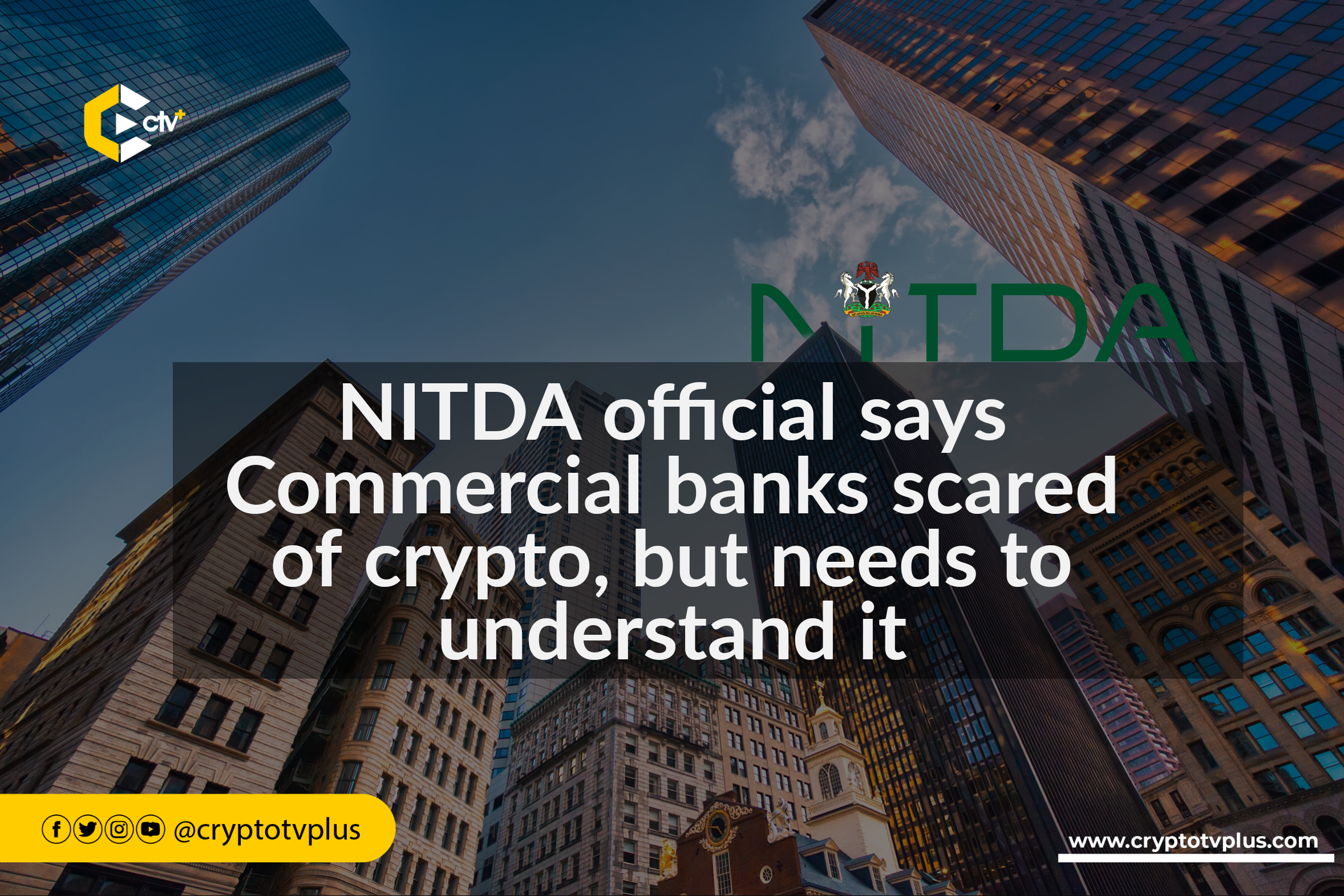FEATURED
NITDA Official says Commercial banks scared of crypto, but needs to understand it

The banking sector has been stirred up by the emergence and rapid ascent of cryptocurrencies. This disruptive innovation poses a challenge to the long-established financial world, particularly commercial banks, who find themselves grappling with the very foundations of their industry.
Cryptocurrencies, with their decentralized nature and utilization of blockchain technology, usher in a paradigm shift that demands attention. Yet, rather than eagerly embracing this revolution, commercial banks are wary and anxious about the potential ramifications it could introduce.
Speaking at a panelist session, at the Digital Assets Summit hosted by SiBAN in Abuja, Nigeria, Preye Itonyo, the Deputy Director of the Digital Economy Development Department at NITDA, said that commercial banks are scared of crypto as a financial instrument.
The reason for this is that cryptocurrencies seem to serve as an alternative to the traditional role of commercial banks. Crypto users can operate without relying on a conventional banking system.
Furthermore, he mentioned that this fear stems from a lack of comprehension about the underlying technology of crypto: blockchain. A deeper understanding of how blockchain operates would foster an environment that harnesses the technology’s potential for the benefit of everyone.
It is worth noting that in 2021, the Central Bank of Nigeria, responsible for regulating commercial banks, instructed all banks to cease facilitating crypto transactions for their customers.
The directive also stretched beyond customers to organizations that have accounts in such banks thereby affecting the crypto landscape in the country.
Understanding blockchain and its effect
Speaking about the importance of understanding blockchain technology, Senator Ihenyen, the former President of SiBAN, and Lead Partner at Infusion Lawyers, said that one of the goals of the crypto industry in Nigeria is to use emerging technologies to create wealth for its citizens.
He further stated that countries with a positive proactive approach to technology adoption, particularly in the context of blockchain, will reap the benefits.
Instead of opposing or hindering technological advancements, governments should embrace and regulate the individuals or entities using the technology because technology itself is neutral; what matters is how it is used.
The Lawyer cited Dubai as an example of a place that has adopted this approach successfully. By being open to technology and creating favorable regulations, Dubai has attracted more investors, boosting its economic growth through the use of blockchain technology.
How investors are protected
Preye, who also spoke about how investors will be protected in the industry which is seen as a volatile space, noted that NITDA is looking at the industry from a developmental angle. This has to do with how crypto-based products are created and how they are designed to protect users.
He mentioned that the National Blockchain Policy that was launched earlier this year is a strategy toward a safer industry that will thrive and benefit every player involved.
He added that Nigeria is at the implementation phase of the policy which involves listening to stakeholders of the industry to know what their challenges are and collaborating with them to create the effective solutions for those challenges.
Another step he mentioned was that the policy has a steering committee made up of CBN, NCC, and other concerned organizations in the nation working together to implement the policy. This engagement between the government and the industry will produce the right results for everyone.
Read also; Why CBN is interested in an eNaira-based stablecoin — Convexity COO speaks

























Pingback: NITDA Official says Commercial banks scared of crypto, but needs to understand it by Chuks Nnabuenyi Jr – CryptoTvplus Events: NFT, DeFi, Bitcoin, Ethereum, Altcoin Events
Pingback: Why crypto education suffers in Nigeria; industry needs collaboration - Chris Ani | CryptoTvplus - The Leading Blockchain Media Firm